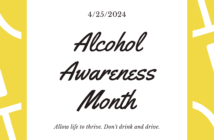By: Lester Williams
Right now there are thousands of animals in the world that are being confined, abused and mistreated by various companies who use them as test subjects.
There is no stopping progress, and animals have aided in humans’ progress for centuries in a multitude of ways, from transport, sports and recreation, to emotional support, protectors as well as helping researchers in ways such as animal testing.
crueltyfreeinternational.org defines animal testing as “any scientific experiment or test in which a live animal is forced to undergo something that is likely to cause them pain, suffering, distress or lasting harm.”
There are many reasons why so many animals are used as test subjects, for one they provide experimental models which can be used to study the development of diseases and how they can be cured.
This is especially helpful when researching mice; yourgenome.org states “Humans, and mice share many common genetic features.” Mice are also cheap, can rapidly reproduce and are small in size.
The second reason is animal testing comes with less moral issues.
Unlike a human test subject, researchers don’t always have to consider if the animal being tested could die, they can also monitor the subject 24 hours a day, and they don’t need to ask for the animal’s consent.
This system of using animals before using humans in experiments has helped save many humans from being used as lab rats.
Still, the issue that animals are suffering because of the experiments were done on them cannot be ignored, although society often tries to ignore it.
There are many factors that can determine if animal testing is justice. Some of these issues include how the research will benefit the animal, the species of the animal and the animal’s natural environment.
Animals who are already in poor condition such as dying of a disease or suffering from either physical or mental damage can be argued to be more fitting candidates than animals who are perfectly healthy and have to be purposely damaged or traumatized by researchers.
It can be suggested that since a majority of the time a human life is more valuable than an animal’s life, experimenting on animals to prevent the death of humans always justifies the use of animal testing.
An example of animal testing used today to help protect humans is in the perfume industry where products are tested on animals to determine how safe they are for human use.
Animal testing can be deemed acceptable so as long as the animal can still live a normal life without mental or physical damage.
For example in some experiments involving animals, researchers would just observe an animal’s behavior and reactions, rather than put them in a dangerous situation.
This is unlike how animals are treated at the National Institutes of Health laboratory where they breed monkeys to traumatize them to study mental illnesses such as depression purposely.
Many researchers can argue that they test animals for the greater good of society such as helping people conquer addiction, curing diseases and understanding the effects of mental disorders.
The issue with trying to give animals rights when being tested on is that if researchers don’t take the risk of inflicting damage onto an animal in their experiments, society can be eroded of vital information.
The research animal testing provides such as in the medical industry can be world-changing which can be worth risking the lives of a few or even hundreds of animals, as it can result in saving millions of lives, both human and animal.
Animal testing has and is still needed to develop and create a stable society, but that doesn’t mean it should not have its limits.




